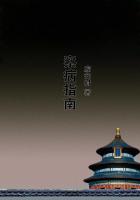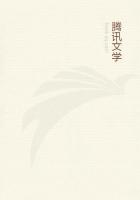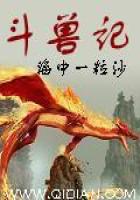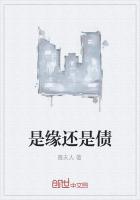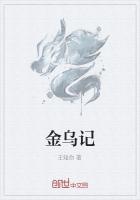Huxley ("Science and Christian Tradition". London, 1904.) found the path of the blameless naturalist everywhere blocked by "Moses": the believer in revelation was generally held to be forced to a choice between revealed cosmogony and the scientific account of origins. It is not clear how far the change in Biblical interpretation is due to natural science, and how far to the vital movements of theological study which have been quite independent of the controversy about species. It belongs to a general renewal of Christian movement, the recovery of a heritage. "Special Creation"--really a biological rather than a theological conception,--seems in its rigid form to have been a recent element even in English biblical orthodoxy.
The Middle Ages had no suspicion that religious faith forbad inquiry into the natural origination of the different forms of life. Bartholomaeus Anglicus, an English Franciscan of the thirteenth century, was a mutationist in his way, as Aristotle, "the Philosopher" of the Christian Schoolmen, had been in his. So late as the seventeenth century, as we learn not only from early proceedings of the Royal Society, but from a writer so homely and so regularly pious as Walton, the variation of species and "spontaneous" generations had no theological bearing, except as instances of that various wonder of the world which in devout minds is food for devotion.
It was in the eighteenth century that the harder statement took shape.
Something in the preciseness of that age, its exaltation of law, its cold passion for a stable and measured universe, its cold denial, its cold affirmation of the power of God, a God of ice, is the occasion of that rigidity of religious thought about the living world which Darwin by accident challenged, or rather by one of those movements of genius which, Goethe ("No productiveness of the highest kind...is in the power of anyone."--"Conversations of Goethe with Eckermann and Soret". London, 1850.) declares, are "elevated above all earthly control."If religious thought in the eighteenth century was aimed at a fixed and nearly finite world of spirit, it followed in all these respects the secular and critical lead. ("La philosophie reformatrice du XVIIIe siecle (Berthelot, "Evolutionisme et Platonisme", Paris, 1908, page 45.) ramenait la nature et la societe a des mecanismes que la pensee reflechie peut concevoir et recomposer." In fact, religion in a mechanical age is condemned if it takes any but a mechanical tone. Butler's thought was too moving, too vital, too evolutionary, for the sceptics of his time. In a rationalist, encyclopaedic period, religion also must give hard outline to its facts, it must be able to display its secret to any sensible man in the language used by all sensible men. Milton's prophetic genius furnished the eighteenth century, out of the depth of the passionate age before it, with the theological tone it was to need. In spite of the austere magnificence of his devotion, he gives to smaller souls a dangerous lead. The rigidity of Scripture exegesis belonged to this stately but imperfectly sensitive mode of thought. It passed away with the influence of the older rationalists whose precise denials matched the precise and limited affirmations of the static orthodoxy.
I shall, then, leave the specially biblical aspect of the debate--interesting as it is and even useful, as in Huxley's correspondence with the Duke of Argyll and others in 1892 ("Times", 1892, passim.)--in order to consider without complication the permanent elements of Christian thought brought into question by the teaching of evolution.
Such permanent elements are the doctrine of God as Creator of the universe, and the doctrine of man as spiritual and unique. Upon both the doctrine of evolution seemed to fall with crushing force.
With regard to Man I leave out, acknowledging a grave omission, the doctrine of the Fall and of Sin. And I do so because these have not yet, as I believe, been adequately treated: here the fruitful reaction to the stimulus of evolution is yet to come. The doctrine of sin, indeed, falls principally within the scope of that discussion which has followed or displaced the Darwinian; and without it the Fall cannot be usefully considered. For the question about the Fall is a question not merely of origins, but of the interpretation of moral facts whose moral reality must first be established.
I confine myself therefore to Creation and the dignity of man.
The meaning of evolution, in the most general terms, is that the differentiation of forms is not essentially separate from their behaviour and use; that if these are within the scope of study, that is also; that the world has taken the form we see by movements not unlike those we now see in progress; that what may be called proximate origins are continuous in the way of force and matter, continuous in the way of life, with actual occurrences and actual characteristics. All this has no revolutionary bearing upon the question of ultimate origins. The whole is a statement about process. It says nothing to metaphysicians about cause. It simply brings within the scope of observation or conjecture that series of changes which has given their special characters to the different parts of the world we see. In particular, evolutionary science aspires to the discovery of the process or order of the appearance of life itself: if it were to achieve its aim it could say nothing of the cause of this or indeed of the most familiar occurrences. We should have become spectators or convinced historians of an event which, in respect of its cause and ultimate meaning, would be still impenetrable.

